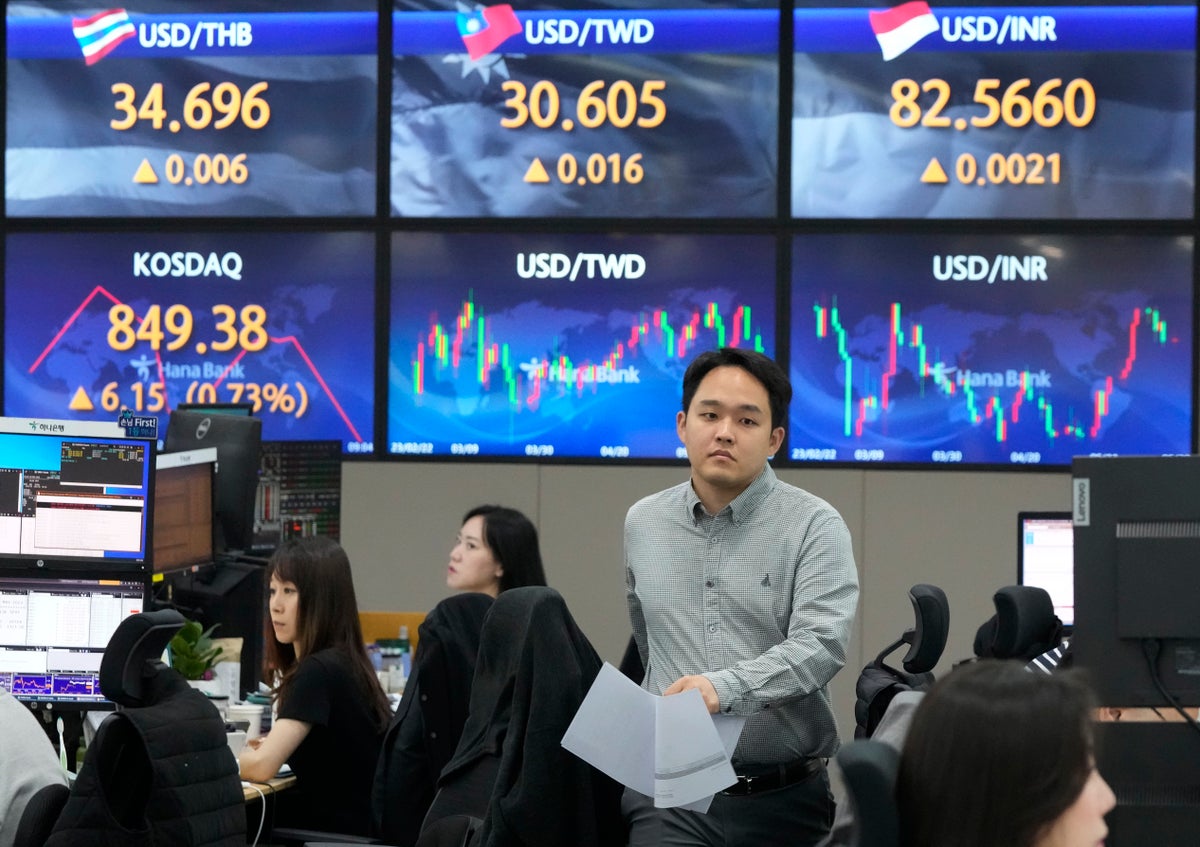
Asian shares were mixed in directionless trading Tuesday following a U.S. holiday, as optimism about a deal on the U.S. debt was dented by worries about the regional economy.
Japan's benchmark Nikkei 225 rose 0.3% to 31,328.16. Australia's S&P/ASX 200 edged down 0.1% to 7,209.30. South Korea's Kospi jumped 1.0% to 2,584.90.
Hong Kong's Hang Seng was up less than 0.1% at 18,553.22. The Shanghai Composite fell less than 0.1% to 3,221.01.
Analysts say investors remain concerned about the a possible “second wave” of COVID-19 cases in China, although the economic impact is expected to be more limited than from the earlier pandemic wave.
China's recovery from virus-related disruptions during the past several years appears to be faltering, adding to worries over the regional economy.
“To say China’s economic opening has been a disappointment could be an understatement, especially as reflected in local stocks that are now on the cusp of a bear market,” Stephen Innes of SPI Asset Management said in a commentary.
World shares finished mostly higher Monday after President Joe Biden and House Speaker Kevin McCarthy reached agreement on a deal to raise the U.S. national debt ceiling. Now Biden and McCarthy are working to gather votes needed to gain congressional approval in time to avert a default.
There are other concerns on top of the threat of the U.S. defaulting on its debt. A key measure of inflation that is closely watched by the Federal Reserve ticked higher than economists expected in April. The persistent pressure from inflation complicates the Fed's fight against high prices. The central bank has been aggressively raising interest rates since 2022, but recently signaled it will likely forgo a rate hike when it meets in mid-June.
Markets are closely watching the U.S. consumer confidence data set to be released later in the day.
In other trading, U.S. benchmark crude fell 25 cents to $72.42 a barrel in electronic trading on the New York Mercantile Exchange. Brent crude, the international standard, declined 44 cents to $76.63 per barrel.
The U.S. dollar edged up to 140.44 Japanese yen from 140.38 yen. The euro cost $1.0700, down from $1.0711.







